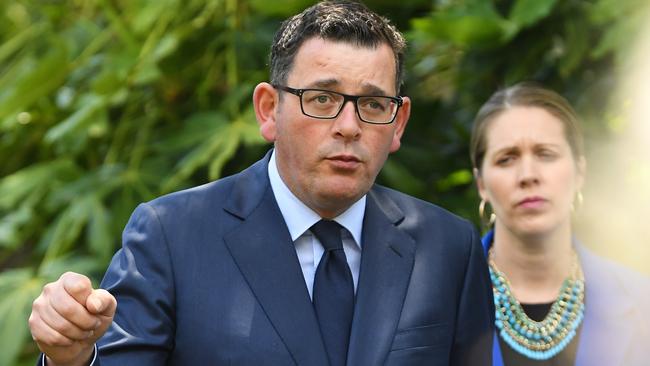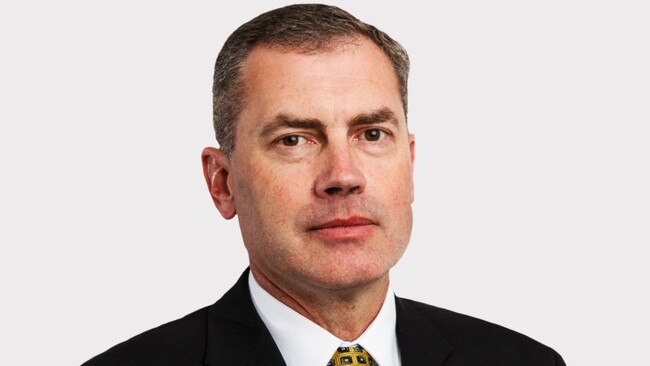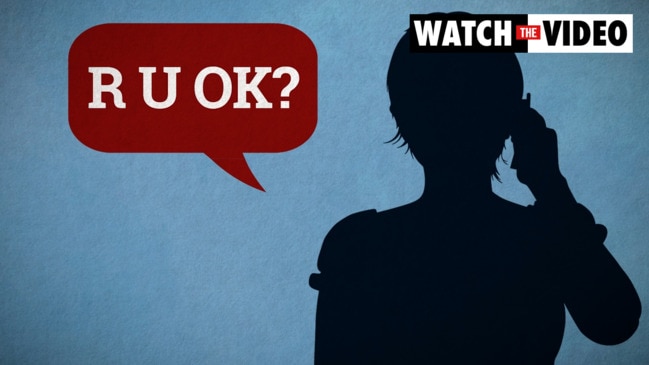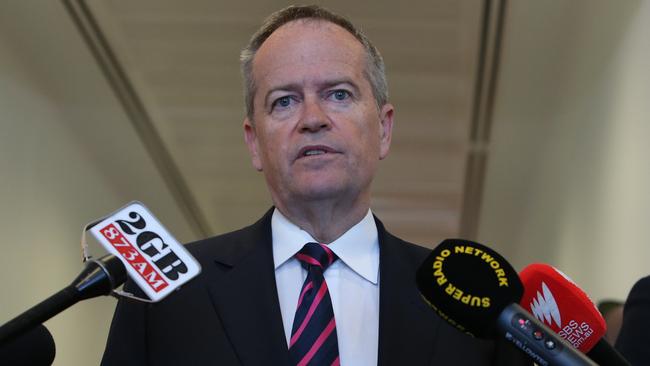Tom Minear: Andrews Government faces tax dilemma on funding mental health reform
It is impossible to put a price on fixing our mental health system — but the Andrews Government still has to wrestle with how to pay for the changes, writes Tom Minear.
Opinion
Don't miss out on the headlines from Opinion. Followed categories will be added to My News.
Fixing the catastrophic failures of our mental health system was never going to come cheap.
But if you want to talk about numbers, there’s only one that matters — the 720 Victorians who took their own lives last year.
It is impossible to put a price on failing to act any longer.
To that end, Daniel Andrews and Victoria’s mental health royal commissioners are right to say the expensive changes on the way are an investment.
“In some ways, this is the most important work that any of us will ever do,” the Premier said last week as he accepted the commission’s initial recommendations.
Andrews tried to ensure this work was viewed as above politics. Although he wouldn’t like to admit it, solving the mental health crisis is an inherently political challenge.
Andrews’ team will spend the summer figuring out how to navigate the commission’s thorniest recommendation: a new tax to pay for the changes to come.

On the surface, this seems like a proposition most Victorians will accept. If you haven’t struggled with a mental health problem, you will know someone who has. The royal commission itself was a popular move with voters.
This isn’t a temporary levy, though. It is a permanent tax which needs to bring in $500 million to $1 billion a year. No matter how you spin it, that’s a lot of money.
Given Victoria’s precarious budgetary position, Andrews’ hands are tied, especially after rejecting a similar measure to fund his family violence reforms.
As Treasury boss David Martine told the commission, governments can only pay for things by cutting funding, increasing borrowing or raising taxes. Labor is already doing two out of three — and doesn’t have the stomach for cuts that would be deep enough.
The commission wasn’t prescriptive on the levy design, but it put options on the table. The Transport Accident Commission is funded out of car rego payments. If you wanted to raise $1 billion, you could charge motorists an extra $200, but how would you feel if rego soared above $1000?

The commission looked at the fire services levy charged to ratepayers. What if the government tacked a levy on to the 2.4 million households with water bills? They would have to shell out $208 each to raise $500 million.
The government does not have a lot of other charges it can tinker with. Hiking stamp duty or payroll tax would harm the economy and it wouldn’t deliver reliable annual funding. What about jacking up fines? It’s more equitable, yet increasing penalties by 10 per cent would only reap $82 million a year.
The Premier suggested a national levy was an option, as he spoke glowingly about Scott Morrison’s commitment to tackling the suicide toll. But Andrews can’t and won’t wait for the Commonwealth to put dollars on the table.
So a levy it is. To make it work, Andrews can and should work with the PM to improve the federally funded side of the system.
The first point of contact for mental health problems is usually covered by Medicare.

Victorians may feel better about paying a levy if they can get more than 10 sessions with a mental health professional, even if the federal government is footing the bill.
The state government must also ramp up its own $1.7 billion mental health spend, on top of the money raised by the levy, because it was mostly on Labor’s watch that the system failed. The Opposition moved quickly last week to reject the levy. This is a risky political move, because action on mental health is popular among voters and if the Coalition wants to be in government after 2022, it will have to find a way to pay for the commission’s recommendations.
But with so much of the Opposition’s narrative tied up in opposing Labor’s increased taxes, it would be difficult for it to run a cost-of-living campaign while supporting a big new levy.
While Andrews and his colleagues will likely attack this as a heartless decision, they would do well to remember how Bill Shorten tore down a similar plan to fully fund the National Disability Insurance Scheme.

In 2017, Morrison vowed to increase the Medicare levy to ensure the scheme’s future. He might have expected Shorten, an early architect of the NDIS, to immediately agree.
Instead, federal Labor only offered to support increasing the levy on those earning over $87,000, painting the government’s move as unfair on working families as it also tried to cut company taxes.
A year later, Morrison had to dump the plan completely.
Shorten made a lot of political missteps but he had correctly diagnosed the economic insecurity of middle-class Australians.
MENTAL HEALTH: TAX TO PAY FOR CHANGES
With a stuttering economy and low wage growth, those concerns have only heightened, particularly in Victoria’s outer suburban and regional areas.
The mental health system does need a sizeable and sustainable long-term source of funding, and for now, a levy is the best way to make that happen.
But Andrews will need care and creativity to succeed. The cost of failure would be far worse.
— Tom Minear is state politics editor

